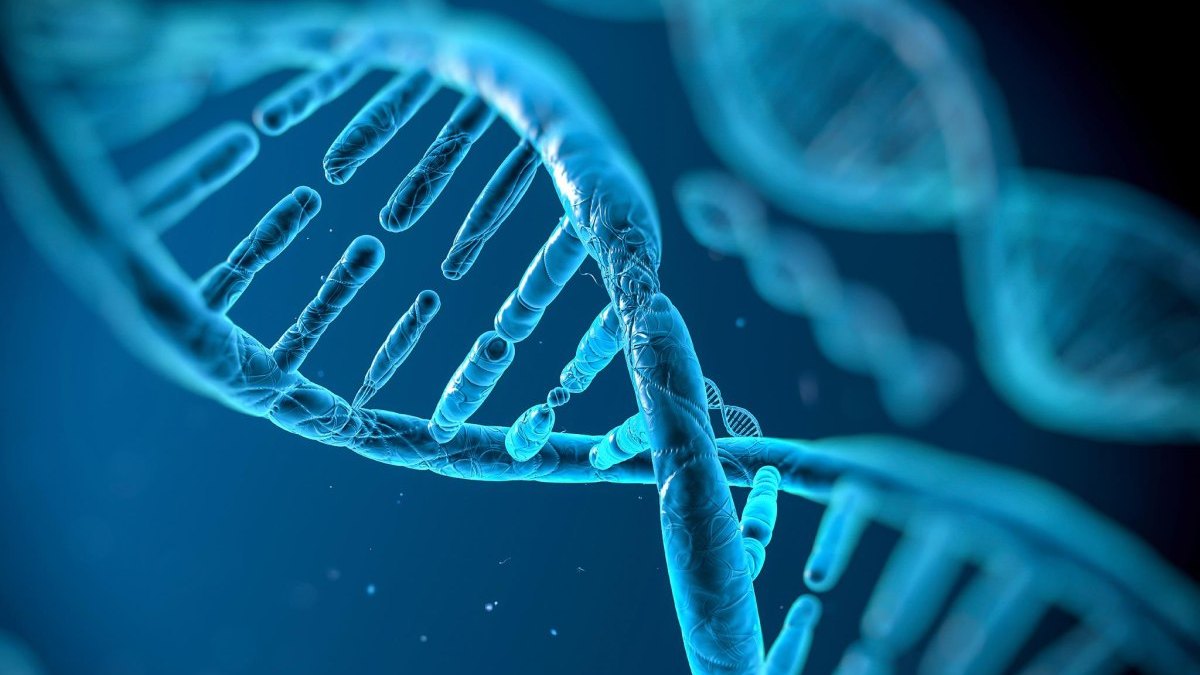
Genetics is a highly interesting scientific field whose hype has been kept alive by new discoveries and studies. That is why authors who are well versed with the field write books about genetics to make particular aspects understandable. Such books will usually illustrate gene structure, functions, regulation, and variations. They also highlight significant issues about DNA and RNA, gene mapping, and heredity. Genes make every person unique and we have gathered the best genetics books that will offer you the help needed to understand this growing aspect of science life.
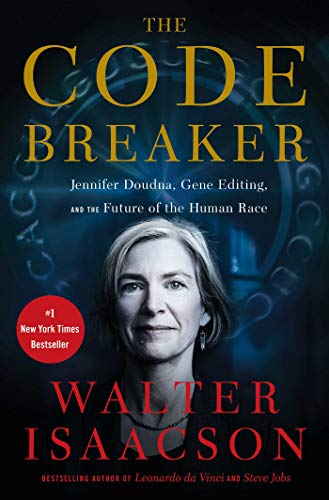
The Code Breaker, by Walter Isaacson
The Code Breaker follows Jennifer Doudna’s story, a researcher and scientist. Together with other worldwide researchers, they turned curiosity about nature into a transformative invention. They are racing toward editing DNA so that someday it will assist us to cure various diseases; cancers of different kinds, sickle cell anemia, and HIV. The DNA editing is also the decisive factor when it comes to Covid-19 vaccines. With the creation of CRISPR- editing RNA which comes from our DNA to fight and destroy viruses, this team has technically reinvented the Code of life.
DNA editing can begin before the implantation of a fertilized egg into a woman. If there is a history of a certain disease in the woman’s family, then the gene responsible for the disease can be edited out. Ultimately, she bears a child without the condition. This may raise ethical concerns which are fully discussed in the book. However, the potential to save lives and lessen suffering is worth discovering.
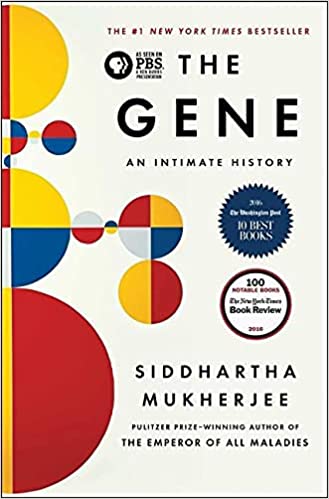
The Gene, by Siddhartha Mukherjee
This is a book that illustrates the magnificent history about the gene. It answers a critical question; What does being human translate to after humans learn how to “read” and “write” their individual generic information?
Siddhartha writes a biography of the gene brilliantly and with deft. He weaves science, a personal narrative, and social history to enlighten us about one of the most crucial conceptual breakthroughs of current times. The discussed concepts have been made easy to understand. He takes readers on a quest to understand heredity and how it surprisingly influences lives, identities, personalities, choices, and even fates.
The bewildering story about his family and mental illness will get you into deep thoughts. It will remind you of the questions that surround our ability to translate genetics from the lab to the real world. With excellent prose, he describes years of past genetic research, experiments, and key innovations of the 21st century.
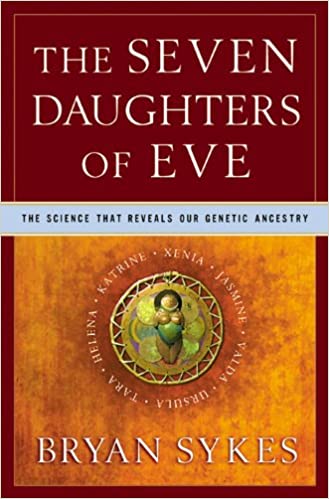
The Seven Daughters of Eve, by Bryan Sykes
Bryan is a natural storyteller given how he relates a historical aspect about gene development and the decoding of DNA in contemporary times. This book is an account that shows how archeological evidence and the findings of molecular biology complement each other. All this in the quest to bring light our past and beginning.
The Seven Daughters of Eve reveals how humans came from seven prehistoric women. Sykes was summoned to examine the remains of a man who had been caught up in glacial ice for over a thousand years. He successfully extracted his mitochondrial DNA, but more importantly, he was able to link the same DNA to today’s live Europeans.
In the book, he reveals details about the discovery of a particular DNA strand. It is passed without being broken through maternal lines and enables scientists to trace genetic makeup and evolution to the prehistoric times and seven women; the seven daughters of Eve. This book will make you view humanity differently.
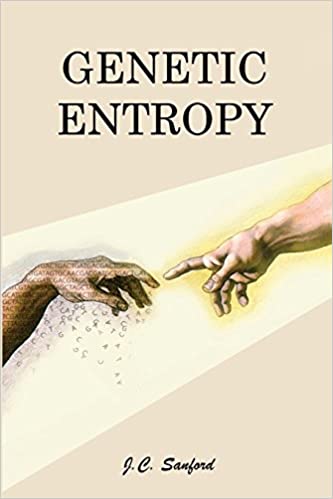
Genetic Entropy, by John C. Sanford
The book presents to us compelling and scientific evidence that all living creatures have genomes that are laggardly degenerating. This is due to the buildup of slightly harmful mutations, and it happens regardless of natural selection.
John has analyzed the matter in depth with diverse evidences. He first examines the operation of natural selection and random mutation and then goes ahead to show that basic logic calls for genome degeneration. Making a historical examination of the applicable field- population genetics, he illustrates that proficient scientists in the field have acknowledged the fundamental problems he has discovered during his study. However, the broader scientific community is unaware of the problems.
He has collaborated with other scientists to carry out state-of-the-art experiments that approve the problem with genetic degeneration, even whereby there are optimal conditions and a firm selection. To conclude, he shows that biological populations indisputably manifest genetic degeneration.
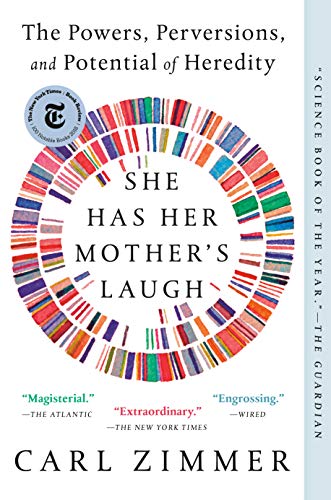
She Has Her Mother’s Laugh, by Carl Zimmer
In the book, Carl presents an original perspective regarding what we pass across generations. The accessible technology for the study of genes makes people order genetic tests to link themselves to missing parents, ethnic identities, and distant ancestors.
Everyone has an amalgam of DNA fragments that are put together from ancestors. Every piece has individual ancestry and travels a different path, back throughout human history. There is a specific fragment that can lead to worry at times but, most of our DNA plays a role in who we are in subtle and unbelievable ways.
Heredity is not just about passing genes from parent to child. It continues within the body as one cell brings forth trillions of cells that make the body. We may say we inherit genes from our ancestors but we also inherit various things that are significant, like microbes. Again, heredity also yields profound inferences like technology, medicine, research funding, regulation, and more. Going by Carl, we need to redefine heredity.
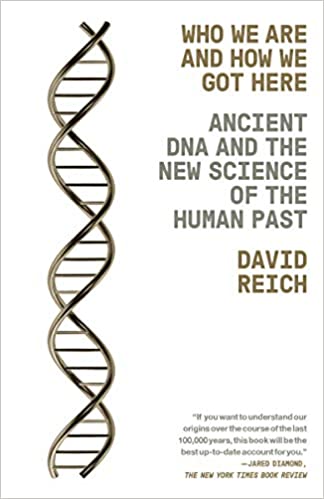
Who We Are and How We Got Here, by David Reich
This is a book that explains how ancient DNA has outrightly changed how we understand human history. Written by a geneticist, the book gives an account of astounding genomic advances. They have proven to be as essential as other fields and resources meant to help us understand our ancestry like archeology, written records, and linguistics.
Readers are taken on a discovery journey about how the human genome is responsible for various aspects. For example, the provision of all the information required for the development of a human embryo and the undisclosed story of our species. He gets into how genomic revolution greatly transforms our comprehension of modern humans.
He also depicts how DNA studies show significant disparities among various populations, individuals, and various sexes. The book also suggests that there may be biological variances among human populations. However, the dissimilarities are not likely to agree with common stereotypes.
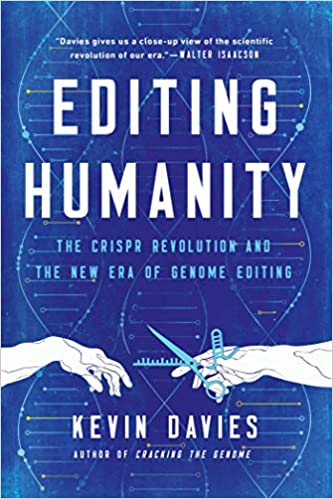
Editing Humanity, by Kevin Davies
If human genes are determinants of our destiny, then what could possibly happen if humans could engineer and change every component of DNA coding? Many people may be spared from the disastrous effects of hereditary diseases and others may be saved from the challenges that come with disability. Be it sickle cell anemia, destructive effects of Huntington’s disease, and more.
This is however a move to “play God” and it provokes serious ethical questions alongside the threats of possible misuse. These questions have been part of science fiction for many years but that is all about to change. Readers are taken into the world of CRISPR, gene editing technology. The powerful genetic toolkit allows scientists to engineer and edit organism DNA and the particular builders of the genetic code. Davies makes known and gives a perspective about the implications this technology can have on our daily lives and those of upcoming generations. He tracks front line CRISPR research scientists with insights from CRISPR patients that give powerful stories to make this account match a human scale.
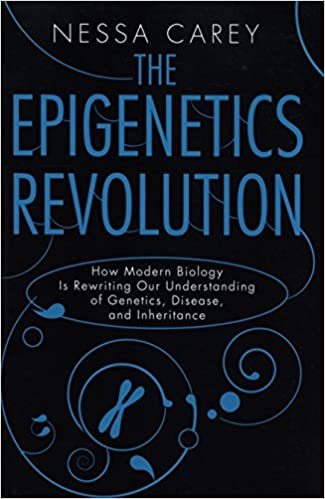
The Epigenetics Revolution, by Nessa Carey
Epigenetics can possibly result in revolutionized understanding regarding the conduct and structure of earthly biological life. This book offers readers a readily understandable foreword to the groundwork of epigenetics. It highlights why genetic code mapping is not satisfactory in determining how an organism develops or behaves and shows that nature combined with nurture can engineer biological diversities. It is a twenty-year survey of the field and one with the most current findings and innovations.
Nessa links the arguments about epigenetics to distinct phenomena; like how ants and queen bees govern their colonies, the reason tortoiseshell cats are female, why certain plants flower only after cold weather, and how bodies grow old and develop diseases. Epigenetics has now gone beyond biology, and it now informs drug addiction works and long-term famine effects. The field also makes known physical and psychological effects brought about by childhood trauma.
To conclude, Carey discusses future directions for epigenetics research and its overall ability to bring forth better health and ultimately, well-being.
Final Thoughts
Books about genetics are essential and particularly for those interested in science. They explain different aspects that surround genes and heredity. Genetics is a complex field of study but one that makes us understand how we come to be. After all, genes are components of the body that play a role in determining our physical traits, appearance, and a lot more.
To help you get more insights about genetics, any copy of our recommended genetics books is worth your time. If you are interested in human evolution check out the following book list.
